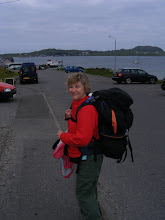During the spring of 1961, a delegation of educators met for the purpose of reviewing "what is known and what is not known about the teaching and learning of composition and the conditions under which it is taught, for the purpose of preparing for publication a special scientifically based report on what is known in this area" (193). Research in Written Composition is the report that was produced under the collaborative efforts of Drs. Richard Braddock, Richard Lloyd-Jones, and Lowell Schoer. Initially, their task was enormous as an ad hoc committee of twenty university educators initially identified more than 1,000 bibliographic citations relating to research done in a similar vein (194). What follows in their chapter "The Preparation of This Report" is an exacting account of how their research project was conducted.
The purpose of my blog entry is not to delve into their methods but to focus on the complexity of the conversation that has and will continue to take place "about how writing should be taught" (193) which has challenged the beliefs of my own pedagogy.
Are my beliefs based on "scientific research"? Are they based on emotional jerk-knee responses? Are they based on experience in the classroom and other teaching venues? I'm discovering, when pressed, what I think I know is problematic. After all, if the Executive Committee of the National Council of Teachers of English examined this issue at a national level, utilizing the talents of university professors who find it difficult to produce irrefutable evidence; the implications for the individual classroom teacher to produce measurable results is ominous.
The importance of this chapter was to provide credibility for the results of their research which will influence teaching approaches at a national level.
An individual pedagogy statement demands no less; Tuesday night's class discussion affirmed that I hadn't done my research. What do I believe about "the teaching and learning of composition and the conditions under which it is taught"? I must admit at this juncture, I don't know.
Wednesday, February 3, 2010
Subscribe to:
Post Comments (Atom)

It is a wise decision for all of us to admit that we don't know. But at what point do we really begin to understand how our beliefs and practices interplay. When we add in that we have to meet the student and connect with their individuality as well, the probability of knowing becomes less so. While I think a teacher must go through trial and error to find the best way to give their students the tools they need, and while what might have worked in one class won't work in another, the constant changing atmosphere of the classroom is what makes it exciting. We shouldn't be intimidated by what we don't know but rather embrace the challenge as that element which makes our experience alive instead of stagnant.
ReplyDeleteScientific research and data collection certainly have their place in proving or disproving theories, yet they have their limitations when measuring effective teaching. Students aren't widgets. It is hard to measure people because they aren't uniform. They come from varied backgrounds, ethnicities, genders, classes. In addition, experience and intuition (better words for "emotional knee-jerk reaction") are valuable assets too. Ideally, I think we read the scientists and theorists to look for commonalities in what we already practice and believe. If we are successful teachers or writers, there will very likely be science that supports our methods. I've taught (and utilized) pre-writing for years and was so excited to see the theories behind its origin. We also look to scientists and theorists to expand our vision of what is possible, not to limit ourselves to only what is measurable. I did attend a two-day seminar on evaluating arts programs, where we saw a scientific process of "measuring joy." While they maybe have learned to measure some abstract notions, there are so many more intangibles that are immeasurable.
ReplyDeleteThank you Dawn and Jo for your insight. While each classroom is different, made up of divergent abilities and interest, there is a core approach that will be successful. That, was the purpose of this research. Complex issues that excite the imagination lead to new approaches. I look forward to what these discussions might lead to in the development of my own pedagogy.
ReplyDelete